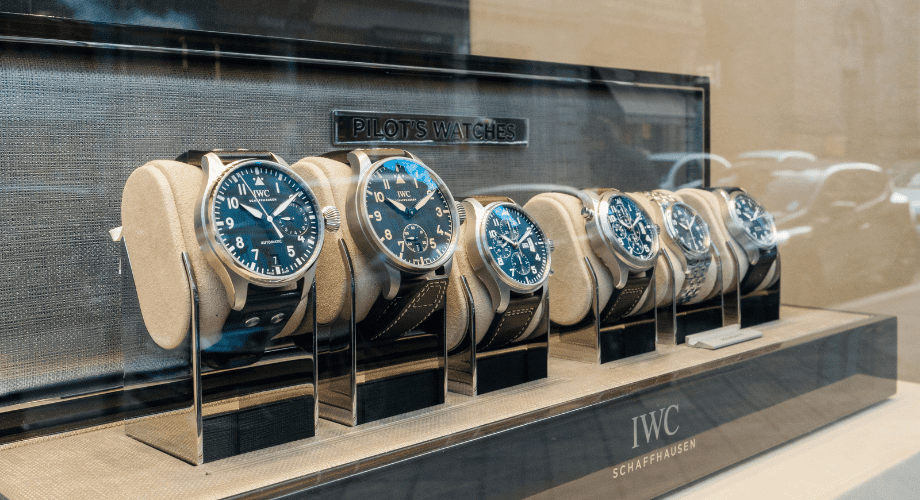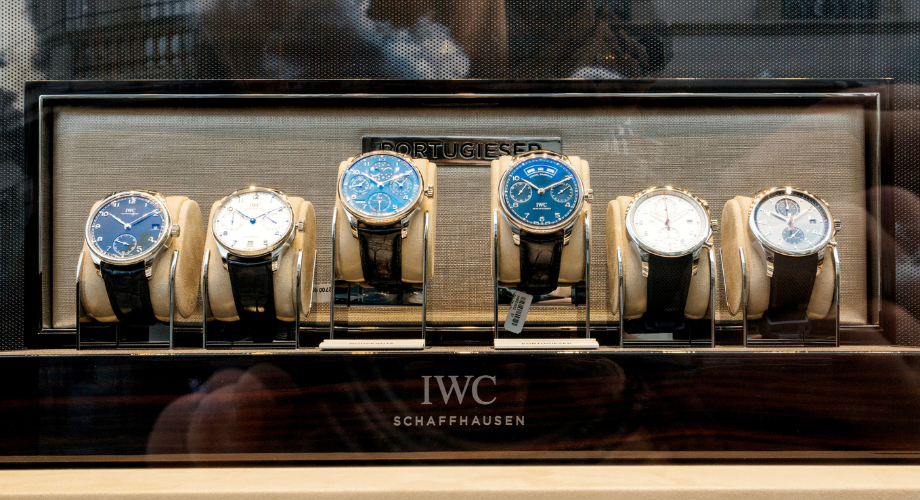
The International Watch Company is known for producing high-quality timepieces that are expertly crafted and made with care. They are a highly respected and reputable brand of luxury watches. But are their watches chronometer?
IWC makes chronometer watches, but they are not COSC-certified. Not all chronometer watches are certified by this organization. IWC watches have a long and fascinating history, as they have thrived without the coveted COSC certification and have stood the test of time.
I am personally a big fan of IWC because I think that their watch quality is amazing and they’re an underrated brand on the market. However, chronometer watches are often confused with chronograph watches, but there is a distinct difference. If you want to know if IWC watches are chronometers, read on and check out this article.
What Is COSC?
If you are not an avid watch investor, the terms utilized in watch terminology can be confusing. It may seem like the watchmaking industry needs a unique dictionary to explain the meaning of specific terms. However, when you put them into simpler words, they can be easier to understand.
COSC is an organization that is vital to the watchmaking industry, as it is non-biased about certifying Swiss watches as chronometers. In English, the organization is referred to as the Official Swiss Chronometer Testing Institute.
All COSC-certified watches are chronometers. However, not all timepieces are certified by the organization. Certain brands of watches offer COSC watches. It can be a thrill for watch collectors to own a COSC-certified watch.
If you’re someone who is looking for the best watches on the market right now, I have just the thing for you. On another page, I wrote a recommendation page of all of the best watch brands in the world that would be a phenomenal addition to your collection. Click here to check it out.
What Makes a Chronometer Watch?
To say that a watch is a chronometer means that it has passed several strict precision tests and has achieved certification from the COSC. The purpose of the test is to measure the accuracy of the watch.
If a watchmaker wants to attain this certification, the watch must be within +6 and -4 seconds per day. If a watch is described as a chronometer, it keeps impressively accurate time.
A watch with this distinction usually carries the word “chronometer” on the dial. Chronometer testing will measure the movement of the dial right down to the smallest percentage of a second. For a watch to be considered Chronometer, it had better be that accurate above anything else. Because precision tests are so intense, only a few watches are certified chronometers.
What Is a Chronograph?
Chronometer watches are often confused with chronographs. A chronograph watch has a built-in stop-watch feature used to measure periods. Chronographs can be recognized by their two or three sub-dials and two pushers, which stop and start the chronograph without hindering the watch at all. The subdials feature the hours, minutes, and seconds.
Chronographs serve a few purposes:
- Measure your heart rate
- Determine your average speed
- Measures elapsed time
- Keep track of two events simultaneously
These watches tell time accurately, even though their functions are pretty complicated. Chronograph watches are excellent for those who go diving or racing, as they perform several required functions for measuring success. Just because a timepiece is a chronometer does not make it a chronograph, and just because it is a chronograph does not make it a certified chronometer.
Brief History of the Chronometer
In 1705, there was a tragic shipwreck that involved four British ships. It was precipitated by faulty navigation. There was no way to measure longitude at sea. To prevent this occurrence from happening again, the British Parliament offered a high sum of money to whoever could devise a viable solution.
George Graham invented the solution to the problem in the pendulum clock around 1715. An apprentice to George Graham, Thomas Mudge invented the Swiss lever, which is still used today in watches. In 1765, he published a book called “Thoughts on the Means of Improving Watches, Particularly Those for Use at Sea.”
In 1771, he created different models of chronometers. Pierre Le Roy was influential in developing the foundation of modern precision clocks. He invented a detached escapement, and the temperature compensated for balance and balance spring. Pierre Jaquet-Droz helped create singing bird boxes and developed chiming elements and gongs.
In 1721, temperature-compensated pendulums were developed. John Harrison made the most critical development when he used his escapement designs to craft the first three marine chronometers.
What Are IWC Watches?

IWC, which stands for International Watch Company, is a brand of watches considered highly prestigious and respected by both the watchmaking industry and the watch-wearing community. IWC has everything from dressy to diving watches.
There are six signature watch families in IWC watches:
- Pilot’s watch
- Portugieser
- Ingenieur
- Aquatimer
- Da Vinci
- Portofino
IWC does not depend on fancy celebrity endorsements or elaborate advertising tactics. Instead, their money goes toward creating high-quality timepieces. Their watches increase in value as time progresses, making IWC watches a significant investment. They produce their signature watches in limited quantities.
Brief History of IWC
IWC was established in 1868 by Florentine Aristo Jones, who knew that the American style of production combined with the famous high level of Swiss craftsmanship would be unbeatable. The IWC watch factory was in Schaffhausen, and IWC is still there today. Jones quickly made a name for himself when he invented the Jones caliber for pocket watches.
It was not long before IWC developed pocket watch mechanisms that even today would reach the precision of the Chronometer. It started a trend in which IWC watches became extremely rare collector items. During the 1930s, IWC presented the first watch designed for aviators with an antimagnetic mechanism.
By the end of the 1940s, the first mechanism that allowed the watch to be wound up on both sides was made. IWC’s patented automatic spring has not needed improvement for about seventy to eighty years. In 1957, new machines were purchased for IWC to meet new demand and surpass its competitors.
In 1967, the growing popularity of water sports precipitated IWC to launch the Aquatimer. In 1969, IWC’s first quartz wristwatch was created. In 1978, IWC introduced the world’s first titanium watchcases and bracelets, which was quite an impressive feat.
These days, IWC watches are more famous for their line of pilot watches. The first IWC pilot timepiece was produced in the mid-1930s for civil aviation purposes, and the design was taken from World War I and World War II and the Portuguese line of watches.
Are IWC Watches Chronometer Certified?
Chronometers are high-precision watches. However, not all chronometers are COSC-certified. IWC has refused chronometer certifications on their watches. They have a certain quality that does not necessarily require certification to stand on their own merit.
Some of the unique features of IWC watches:
- The traditional approach to craftsmanship
- The sophistication of case backs
- Wonderfully visible movements
- Appealing Collections
IWC has an annual production of only 70,000 watches, making them a unique and limited brand. IWC creates high-quality, simple watches, as well as high-quality complicated watches. They are literally as valuable as gold at either end of the spectrum. They offer more when it comes to purchasing a luxury watch. A COSC certification is not needed to prove that these watches are top-of-the-line.
Conclusion
IWC watches are chronometer watches. However, they are not certified with the COSC stamp of approval. Chronometer watches must endure rigorous testing to earn their certification. It is a privilege for a watch collector to own a chronometer watch, whether it is COSC certified or not.
